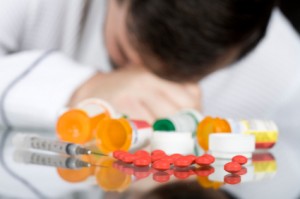Stimulant Addiction’s Hold on the Mind and the Benefits of Talk Therapies in Treatment
Ecstasy, methamphetamine and cocaine exist as a few of the most addictive drugs on the market, all of which are stimulants. As a general rule, the more addictive the drug the more difficult the recovery process, simply because of the long-term effects had on a person’s thinking.
While the physical effects of stimulant addiction can be fairly harsh, breaking the body’s dependency on the drug is only half the battle. For these reasons, stimulant addiction rehab programs employ a range of talk therapies to help a person undo the effects of chronic drug abuse on the mind. In the process, recovering addicts develop the type of mindset that can manage daily life without the need for stimulants.
Stimulant Addiction’s Hold on the Mind
While all addictive drugs stimulate dopamine production in the brain to some degree, stimulant drugs exert a tremendous influence on dopamine production rates. According to the National Center for Biotechnology Information, dopamine, the neurotransmitter most involved with the brain reward system, regulates pain and pleasure sensations as well as the body’s movement functions.
Over time, the repeated rise and fall of dopamine levels brought on by stimulant abuse has pronounced effects on reward system functions. This system compiles input received from the brain’s cognitive and emotion-based centers to define a person’s priorities and motivations. By the time a person becomes addicted to stimulants, the brain reward center has designated any behaviors associated with drug use as primary motivators in a person’s life.
Talk Therapies

Group therapy builds on one’s communication skills and ability to cope with triggers.
The use of talk therapies in stimulant addiction treatment works to retrain the brain’s reward system by replacing drug-based motivations with motivations that promote productive behaviors, habits and routines. Talk therapy approaches commonly used in stimulant addiction treatment include:
- Individual psychotherapy
- Group therapy
- 12-Step support group work
Individual Psychotherapy
In effect, stimulant addiction creates a mindset that supports a drug-using lifestyle. Individual psychotherapy entails helping a person identify the thinking and emotions that prompt drug-using behaviors, according to the U. S. National Library of Medicine. Once identified, a person can play an active role in eliminating drug-based thinking patterns and replace them with the type of mindset that promotes drug-free living.
Group Therapies
Conflicts with others and difficult emotions can quickly stoke drug-using urges. Learning how to communicate in a constructive manner with others becomes the focus of the group therapy approach in stimulant addiction treatment. Within the context of a group, members learns how to manage their emotions when working through conflicts and also gain insight on the underlying issues that drive the addiction process.
12-Step Support Groups
Much like the group therapy approach, 12-Step support groups address conflict management in daily life in addition to the range of issues most often encountered in recovery. In essence, these groups deal with real-world issues, such as fear, anger and personal goals while providing guidelines on how to manage drug-using urges on a day-to-day basis. The 12-Step model also follows a step-by-step approach to personal development as it relates to the recovery process.
Considerations
The psychological effects of stimulant addiction can impact a person’s life long after he or she stops using the drug. In turn, the likelihood of relapse and eventual return to drug use runs considerably high when needed talk therapy treatment is overlooked.
If you or someone you know has recently stopped using stimulants and still struggle with drug-using urges, please feel free to call our toll-free helpline at 800-605-6597 Who Answers? for more information on stimulant addiction treatment. Our addictions counselors can also help you locate treatment programs in your area.



